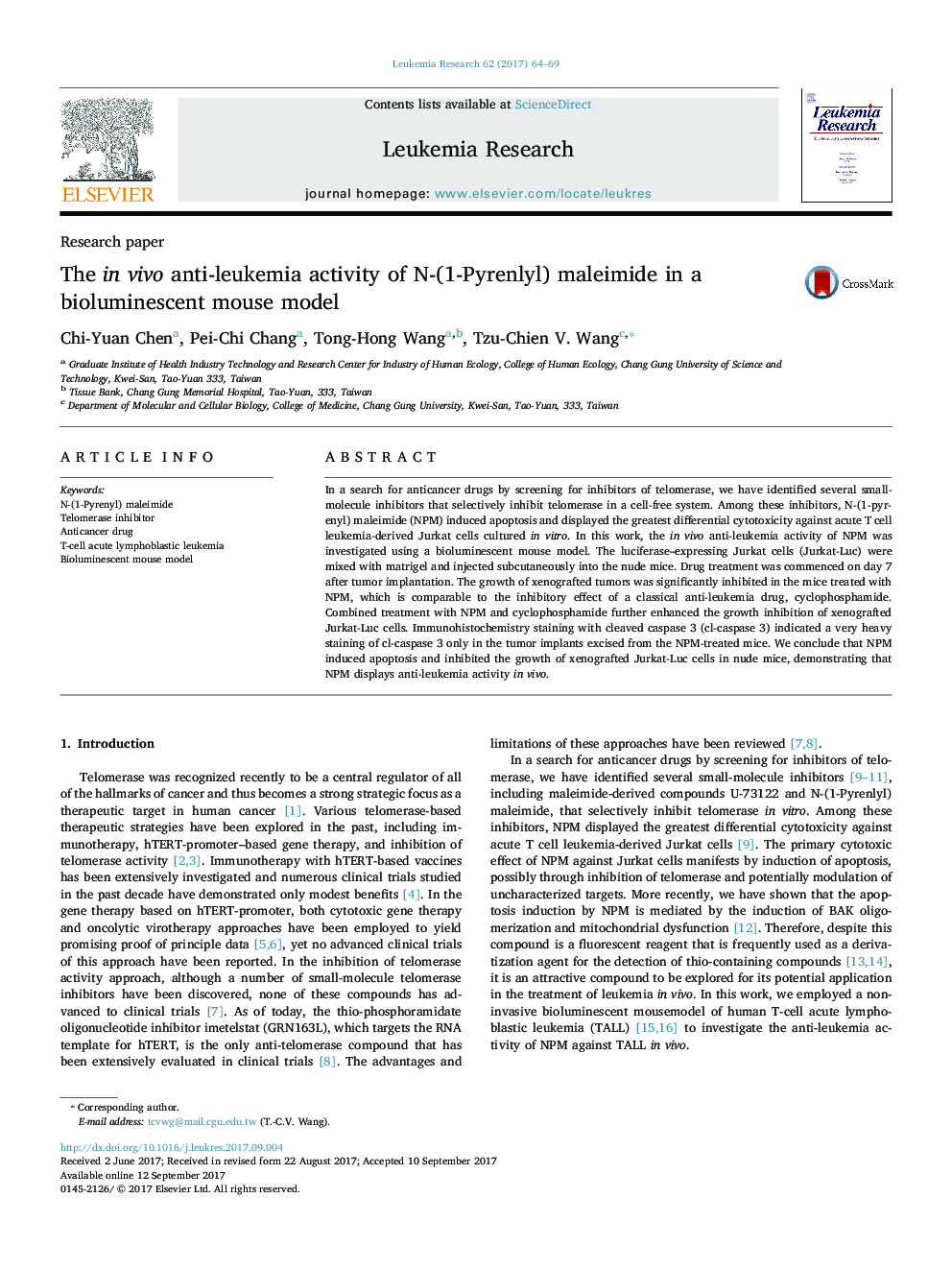| Article ID | Journal | Published Year | Pages | File Type |
|---|---|---|---|---|
| 5527700 | Leukemia Research | 2017 | 6 Pages |
â¢N-(1-Pyrenlyl) maleimide (NPM) is a telomerase inhibitor.â¢NPM displayed great differential cytotoxicity against cultured leukemia cells.â¢The primary cytotoxic effect of NPM manifests by induction of apoptosis.â¢In this work, we demonstrate that NPM displays anti-leukemia activity in vivo.â¢NPM combined with classical anti-leukemia agent produced an additive inhibition.
In a search for anticancer drugs by screening for inhibitors of telomerase, we have identified several small-molecule inhibitors that selectively inhibit telomerase in a cell-free system. Among these inhibitors, N-(1-pyrenyl) maleimide (NPM) induced apoptosis and displayed the greatest differential cytotoxicity against acute T cell leukemia-derived Jurkat cells cultured in vitro. In this work, the in vivo anti-leukemia activity of NPM was investigated using a bioluminescent mouse model. The luciferase-expressing Jurkat cells (Jurkat-Luc) were mixed with matrigel and injected subcutaneously into the nude mice. Drug treatment was commenced on day 7 after tumor implantation. The growth of xenografted tumors was significantly inhibited in the mice treated with NPM, which is comparable to the inhibitory effect of a classical anti-leukemia drug, cyclophosphamide. Combined treatment with NPM and cyclophosphamide further enhanced the growth inhibition of xenografted Jurkat-Luc cells. Immunohistochemistry staining with cleaved caspase 3 (cl-caspase 3) indicated a very heavy staining of cl-caspase 3 only in the tumor implants excised from the NPM-treated mice. We conclude that NPM induced apoptosis and inhibited the growth of xenografted Jurkat-Luc cells in nude mice, demonstrating that NPM displays anti-leukemia activity in vivo.
